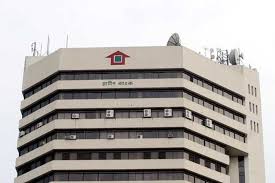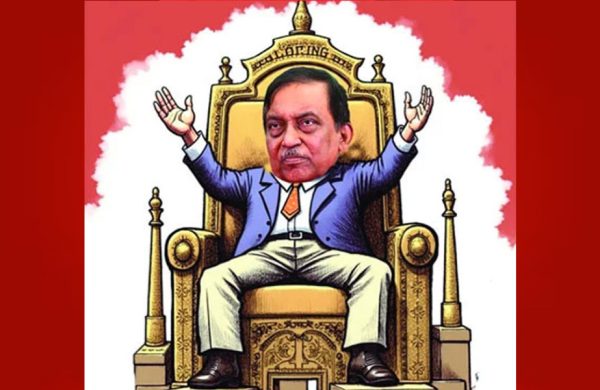Govt to reduce its ownership in Grameen Bank from 25% to 5%
- Update Time : Wednesday, January 8, 2025

TDS Desk:
The government has already drafted an amendment to the Grameen Bank Act, 2013 to implement the changes.
The draft has been published on the website of the Financial Institutions Division under the Ministry of Finance to seek feedback from stakeholders.
The move is aimed at restoring the government’s stake and board representation in the bank to the pre-2011 framework, the official said, requesting anonymity.
The official explained, “Although the 1983 Ordinance stipulated a 25% government ownership in Grameen Bank, successive governments did not contribute their share of the paid-up capital, causing the government’s stake to decline to around 5%-8%.”
In 2011, during the removal of Muhammad Yunus as managing director of Grameen Bank, the government increased its capital contribution to reclaim a 25% shareholding in the institution, said the official.
THE CHANGES
According to the Grameen Bank Ordinance 1983, the government holds 25% ownership, while the remaining 75% is owned by the bank’s borrowers. Under the proposed amendment, 95% of the bank’s shares will be owned by the borrowers.
The bank’s paid-up share capital will be set at Tk300 crore. According to the draft ordinance, borrower-shareholders will gradually increase the paid-up capital to achieve 95% ownership. Any dividends declared by the board will be distributed proportionately based on the paid-up share capital.
Since its inception, Grameen Bank’s 12-member board of directors has included three government-appointed directors, including the chairman, while the remaining nine directors have been elected by the borrowers. Under the proposed ordinance, borrowers will elect 11 directors to the board.
Under the existing law, the government holds the authority to appoint the chairman of the board. The draft ordinance proposes a change, stating that the chairman will be elected by the board members from among themselves.
The current law also stipulates that if the chairman’s position becomes vacant, or in the event of absence, illness, or inability to perform duties, the government may appoint one of the two other government-nominated directors as acting chairman.
The draft ordinance eliminates this provision, stating that if the chairman is unable to perform their duties, the board may authorise any other director to assume the role.
The Financial Institutions Division official said the government was entitled to appoint the chairman and three directors to the board. However, prior to the controversy surrounding Pof Yunus’ removal, the government only exercised its right to appoint the chairman.
“Post-2011, the government began appointing all three directors, alongside the chairman,” added the official.
Under the existing law, the managing director and chief executive officer of Grameen Bank can continue until the age of 60. The draft ordinance retains this provision but states that, in the board’s decision, the managing director’s tenure can be extended up to a maximum of 65 years if deemed necessary for the bank’s operations.
The existing law specifies a three-year term for directors. The draft ordinance retains this three-year term and adds that “elected directors will remain in their position until the newly elected directors assume office”.
The existing law requires prior approval from the Bangladesh Bank to open regional offices of Grameen Bank. However, the draft ordinance proposes the removal of this provision.
The current Grameen Bank Act does not include Dr Yunus’s microcredit programme in Jobra village as part of the establishment of Grameen Bank. The draft ordinance incorporates this by adding an explanation to Section 4 of the law.
It states that the Grameen Bank project refers to the Grameen Bank initiative undertaken in Jobra village, located in Hathazari upazila of Chattogram, under the Rural Economics Programme of the Department of Economics at Chattogram University in 1976. This project was later approved by the Bangladesh Bank, with participation from Bangladesh Agricultural Bank and other banks.
In 2011, during the Awami League government, Dr Muhammad Yunus, the founder of the bank, was forced to resign from his position as managing director. The AL government claimed that Dr Yunus had already crossed the 60-year age limit set for the position. Despite filing a case against the government with the High Court, Yunus, the current chief adviser to the interim government, lost the case.
Following Yunus’s resignation from Grameen Bank, the government amended the law in 2013, but it maintained the government’s stake in ownership and the board of directors.
After the fall of Sheikh Hasina’s government, the Ministry of Finance appointed a new chairman to the bank. Additionally, the interim government granted tax exemptions to the bank.

















